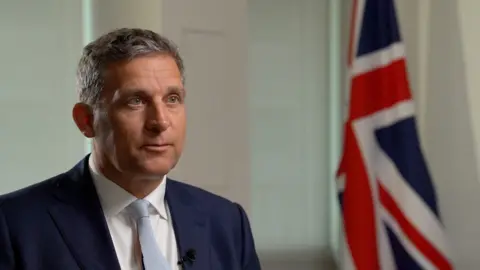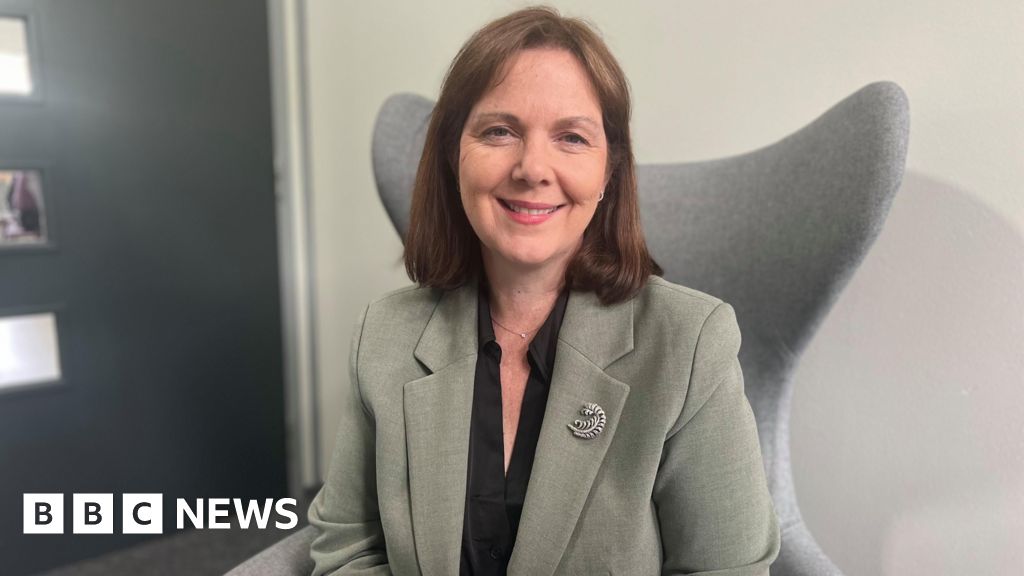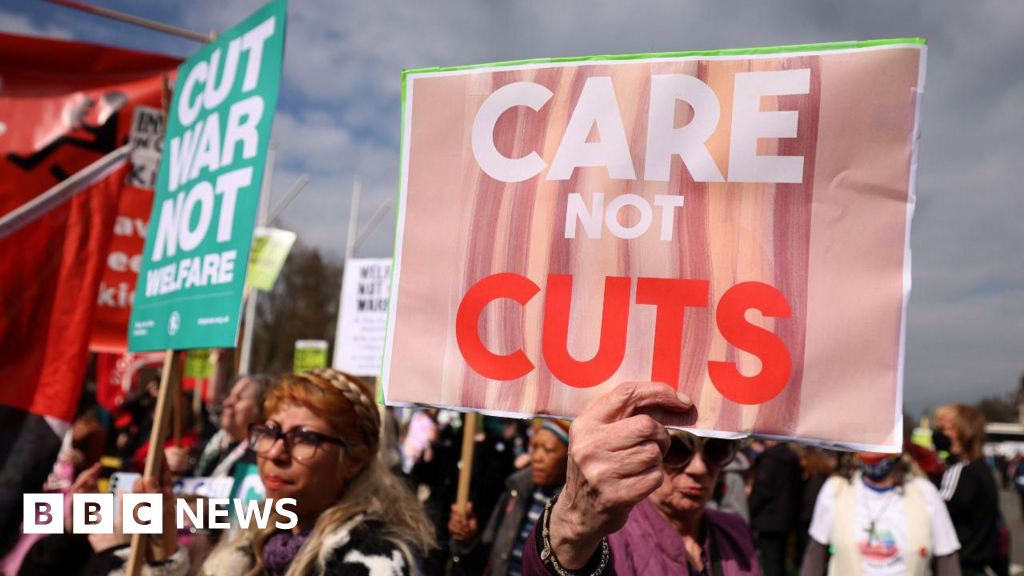ARTICLE AD BOX

 BBC
BBC
Lord Timpson is the former CEO of the Timpson Group, which provides key cutting and shoe repair services
Prisons minister James Timpson has told the BBC more criminals could be tagged in future instead of being sent to prison - but insists he's not "soft on crime".
More than 30 companies, including Microsoft and Google, will meet the government today to explore how technology could help monitor offenders in the community more effectively and tackle violence in prison.
Lord Timpson says tagging more people instead of sending them to prison is a potential alternative punishment.
But critics have questioned his previous comments about the UK being "addicted" to sentencing and punishment, and how "only a third" of inmates should be in prison.
"I don't think I'm soft on crime at all," Lord Timpson says in the wide-ranging BBC interview. "I think I'm pretty tough in my style. In business, I'm tough but I use the evidence - and in this job I'm using the evidence."
He says he is passionate about rehabilitating offenders in prison so they don't commit further crimes when released. However, more than 26% of adult criminals in England and Wales go on to reoffend within a year of being let out of prison.
"How do we reduce re-offending? How do we deal with people's drug addiction, mental health problems, the fact that people leave prison they don't know where to live, people don't have a job? That is also a really important part of my job," he says.
The former CEO of the Timpson Group, which provides key cutting and shoe repair services, is known for hiring ex-offenders and is a former chairman of the Prison Reform Trust.
Lord Timpson took up his role at the Ministry of Justice in July last year, when the penal system in England and Wales was close to breaking point. Prisons were full, and months later thousands of inmates were released early as part of an emergency plan to ease overcrowding and free up space.
He says prisons are still in a state of "crisis", with fewer than 1,000 spare places and more than 88,000 people in custody in England and Wales.
"We recently opened HMP Millsike," he says, describing the new category C prison which opened in East Yorkshire in March, with capacity for up to 1,500 inmates. "We've got more cells opening across the country. We need to keep building prison places because the population is going up."
Last month, three prison officers were seriously injured at HMP Frankland, in Durham, after they were attacked with makeshift weapons and hot oil by one of the men responsible for the Manchester Arena bombing. Hashem Abedi was being held in a separation centre - used to house a small number of the most dangerous and extremist inmates - at the category A, maximum security jail.
"What happened in Frankland is absolutely shocking," Lord Timpson says. "The level of violence in prisons is far too high - and it is increasing.
"Our prison staff did an incredible job. I don't want them to turn up to work thinking that there's going to be violence. I want them to turn up to work helping people turn their lives around."
However, the number of assaults on staff in prison is the highest in a decade, with 10,605 recorded in 2024.
More prisons reporting by Sima Kotecha
Lord Timpson refutes claims that gangs are in charge of some of Britain's biggest jails, but acknowledges that serious organised crime is the one thing that "keeps me awake at night".
"Serious organised crime brings drugs in and creates violence and intimidation in prisons," he says. "This has been a long-term problem in prisons, but it is even more of a problem when the capacity is as full as it is.
"If we had people who went to prison who didn't get drugs and weren't intimidated by serious organised criminals, they'd be far more likely to engage with a sentence and get well enough so that when they leave they don't commit further crime."
The government has commissioned an independent sentencing review to explore alternatives to prison in an attempt to ease overcrowding. The review will provide long-term solutions for the justice system and examine the use and composition of non-custodial sentences, including community alternatives to prison and the use of fines. Increased tagging will also be considered.
There are three types of ankle tags currently used to monitor offenders: alcohol, GPS, and curfew tags. A new study suggests tags that monitor curfews cut reoffending by 20%.
"We want them to have a one-way ticket - not a return back into prison or back into non-custodial sentences," Lord Timpson says.
"What's really important is we embrace technology and look at the evidence - tagging can have some very important benefits."
But the use of electronic tagging to monitor offenders has been problematic. In recent months several probation staff have told the BBC offenders who should be tagged, have not been. The security company Serco has been contracted by the government to manage tagging since October 2023.
"We inherited a contract with Serco and it's been far from perfect," Lord Timpson says. "We're putting a lot of pressure still on them to perform, but we need to work together to make sure that people are tagged on time in the right way. Things are getting better, but we're not there yet."
Anthony Kirby, Serco Group CEO, told the BBC he is pleased the prisons minister has recognised the progress Serco has made since taking over the electronic monitoring service: "We are proud of the role we have supporting the Criminal Justice System, monitoring record numbers of people in the community and protecting public safety in partnership with HMPPS."

 4 hours ago
3
4 hours ago
3








 English (US) ·
English (US) ·